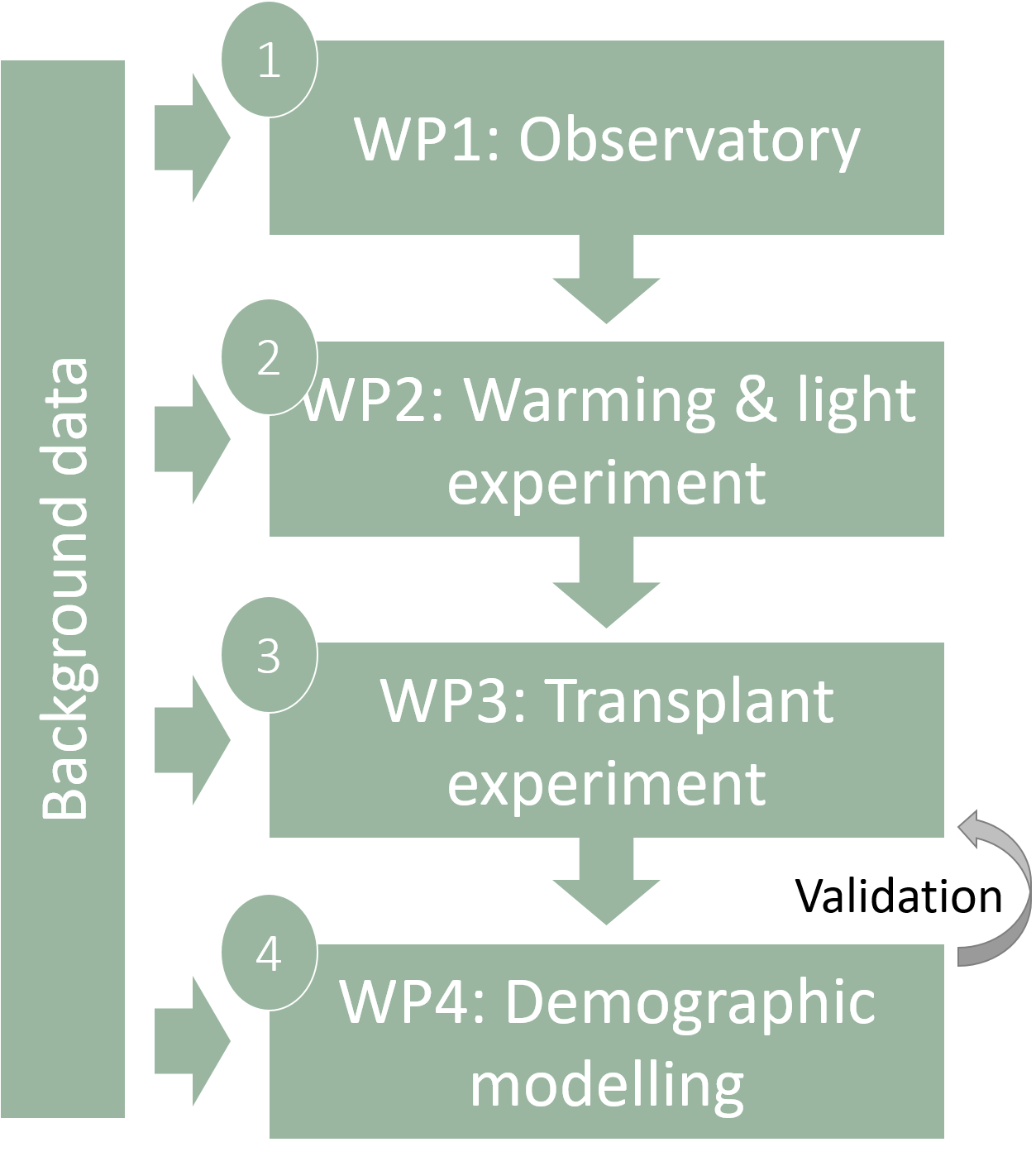Project summary
Recent global warming is acting on ecosystems across the globe and threatening biodiversity. Yet, due to slow responses, many biological communities are lagging behind warming of the macroclimate (the climate of a large geographic region). The buffering of microclimates near the ground measured in local areas, arising from terrain features such as vegetation and topography, can explain why many species are lagging behind macroclimate warming. However, almost all studies ignore the effects of microclimates and key uncertainties still exist about this mechanism.
Microclimates are particularly evident in forests, where understorey habitats are buffered by overstorey trees. In temperate forests, the understorey contains the vast majority of plant diversity and plays an essential role in driving ecosystem processes.
The overall goal of FORMICA (FORest MICroclimate Assessment) is to quantify and understand the role of microclimatic buffering in modulating forest plant responses to macroclimate warming. We apply microtemperature loggers, perform experimental heating, use fluorescent tubes and install a large-scale transplant experiment in temperate forests across Europe. The results will then be integrated in models to forecast plant diversity in temperate forests as macroclimate warms.
FORMICA is a large integrative study on microclimatic buffering of macroclimate warming in forests. The project will reshape our current understanding of the impacts of climate change on forests and help land managers and policy makers to develop urgently needed adaptation strategies.
